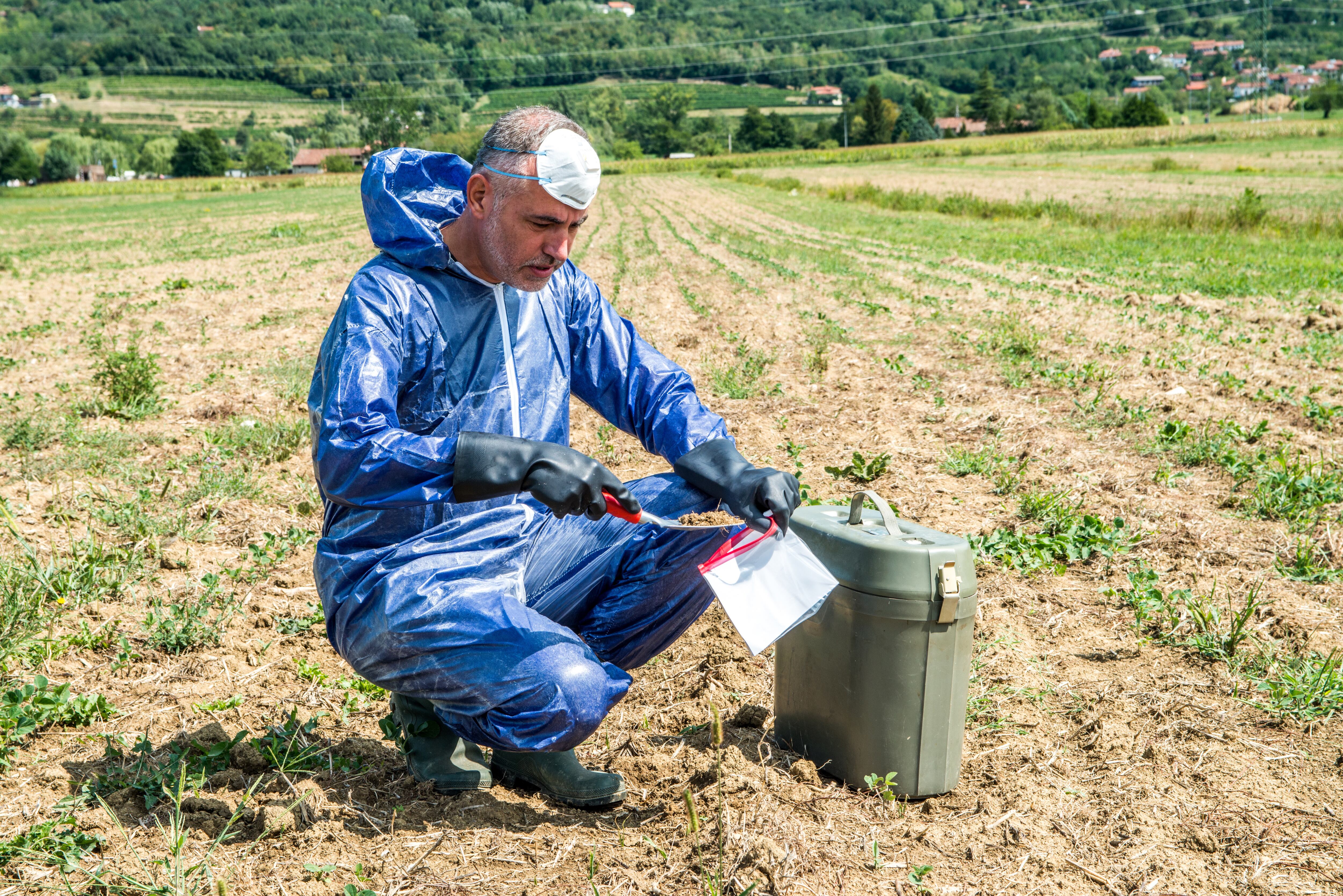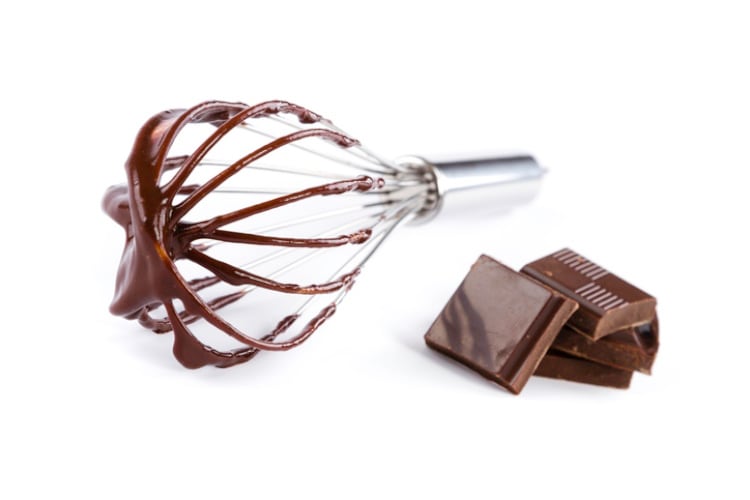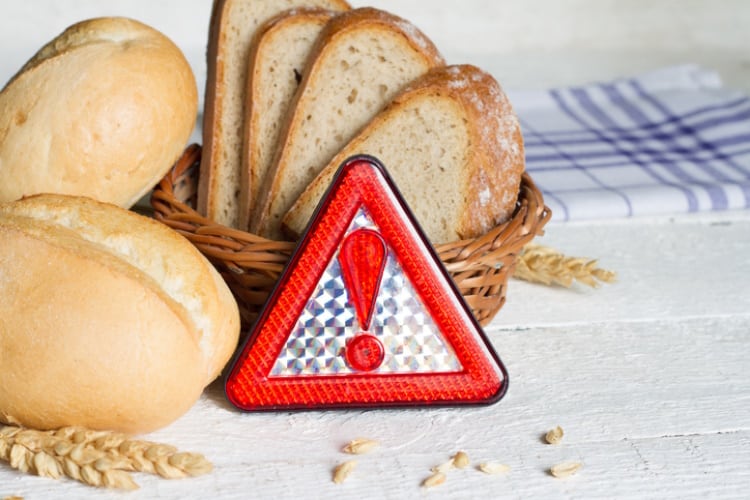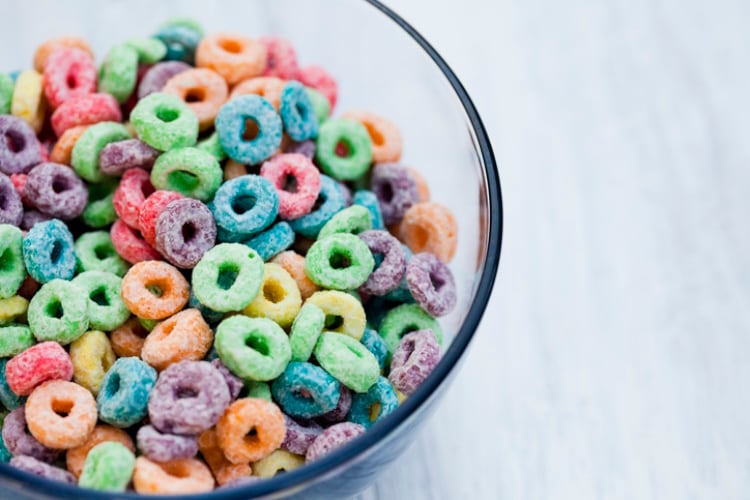It’s one of America’s most cherished traditions: every spring, millions eagerly purchase boxes of Thin Mints, Samoas and Tagalongs, convinced they’re supporting a good cause. But recent reports have uncovered a troubling reality: every single tested sample of Girl Scout Cookies contained traces of glyphosate - the controversial pesticide linked to cancer - and measurable levels of heavy metals, including lead, cadmium and arsenic.
These findings have ignited a firestorm of controversy, culminating in a class action lawsuit filed against Girl Scouts USA and its manufacturers. The lawsuit accuses the organisation of failing to disclose harmful contaminants in their cookies - the very same cookies sold by young girls to families across the nation. Could this be the next major scandal to rock the food industry?
Pesticides and heavy metals in every bite

In December 2024, advocacy groups Moms Across America and GMO Science published a bombshell report that revealed that every tested Girl Scout Cookie sample contained glyphosate, a chemical the World Health Organization has classified as ‘probably carcinogenic to humans’. The study also found that 22 out of 25 samples contained measurable levels of heavy metals, including lead, cadmium, arsenic and mercury. In fact, 76% of the samples exceeded safety thresholds for certain metals based on Environmental Protection Agency (EPA) drinking water standards, prompting serious concerns over whether these contaminants pose a long-term health risk to consumers.
The study wasn’t published in a scientific journal, nor was it peer-reviewed and the US Food and Drug Administration (FDA) hasn’t issued any recalls, arguing the levels found in the cookies are within acceptable limits for food products. However, consumer advocates and scientists have pointed out that regulations in the US for heavy metals in food are lax compared to those in Europe.
EU versus US
The EU has set maximum levels for lead in foodstuffs ranging from 0.01 mg/kg in some baby foods to 0.8 mg/kg in certain fruits and vegetables, while cadmium limits range from 0.005 mg/kg in milk-based infant foods to 3 mg/kg in specific supplements.
In contrast, the FDA has only established action levels for lead in foods intended for infants and young children, setting limits at 10 parts per billion (ppb) for fruits, most vegetables and dairy-based products; and 20 ppb for root vegetables and dry infant cereals.
The FDA hasn’t set specific maximum levels for lead and cadmium for the broader category of processed foods, including baked goods like cookies. Instead, it evaluates these contaminants on a case-by-case basis, considering factors such as detected levels and potential health risks. This lack of concrete regulations for heavy metals in general food products in the US has raised concerns among consumer advocates, who argue that even low-level exposure over time can be harmful - especially for children.
Children in at least 4 million US households are exposed to high levels of lead, according to the Centers for Disease Control and Prevention (CDC). Even low-level lead exposure - at blood lead concentrations below 5 µg/dL - can raise risk of intellectual and academic disabilities in children. Lead exposure also is linked to higher rates of conditions such as hyperactivity and attention deficits, and lower birth weight.
“There is no safe level of lead exposure for children, and the best ‘treatment’ for lead poisoning is to prevent lead exposure before it happens,” said Jennifer Lowry, MD, FAAP, chair of the American Academy of Pediatrics Council on Environmental Health.
Legal firestorm

On 11 March, a class action lawsuit was filed in federal court in the New York City borough of Brooklyn against the 113-year-old nonprofit and the cookies’ licensed producers, Little Brownie Bakers (owned by Ferrero) and ABC Bakers (owned by Interbake Foods). The lawsuit - filed by a resident of Bayside on behalf of concerned consumers - alleges the Girl Scouts misled customers by failing to disclose their cookies contain dangerous contaminants. It also contends consumers would have paid less - or avoided the cookies entirely - if they’d known about the presence of glyphosate and heavy metals.
The contamination of the cookies contradicts the Girl Scouts’ ethical mission, undermining trust in the brand. The lawsuit seeks $5 million in damages, along with an injunction requiring clearer labelling and transparency in ingredient sourcing. Plaintiffs argue that, given the organisation’s emphasis on leadership and integrity, consumers expect Girl Scout Cookies to be held to a higher standard. “The Girl Scouts have built their reputation on trust and community service,” said a legal expert following the case. “If they fail to address these concerns, they risk losing the credibility that has made their cookies a household name for generations.”
This lawsuit could have even bigger consequences. If the plaintiffs succeed, it could force the entire baked goods and snacks industry to confront the issue of pesticides and heavy metals in processed foods - similar to the legal battles currently rocking the chocolate industry over lead and cadmium levels in cocoa products. The Lindt lawsuit has already drawn scrutiny to industry practices and now, the Girl Scouts find themselves caught in a similar storm.
Responding to the study, the nonprofit assured that its Cookies are ‘safe to consume’, noting the health and safety of members and their cookie customers is its top priority.
“All Girl Scout Cookies are produced by our trusted licensed bakers, who are leaders in their industry and adhere to rigorous food safety standards set by the FDA and other relevant authorities,”, it said in a statement. “When you buy Girl Scout Cookies, proceeds stay local, every purchase of Girl Scout Cookies supports local troops in your community.”
The shocking reality of heavy metals in bakery & snacks

Girl Scout Cookies are far from the only products facing scrutiny. Across the bakery and snacks sectors, growing evidence suggests that dangerous contaminants are more common than consumers realise:
- Recent reports have highlighted studies showing that glyphosate residues were detected in 44 out of 46 tested gluten-free snacks, raising alarms about how widely the pesticide is present in grain-based foods. Even organic products were not exempt, with multiple samples testing positive for traces of various pesticides.
- A 2023 FDA review found many baby cereals contained unsafe levels of lead and arsenic, but snack foods remain largely unregulated.
- The lawsuit against Lindt & Sprüngli over lead and cadmium in dark chocolate exposed just how pervasive these contaminants are in processed foods.
Industry experts warn that cookies, chips and crackers frequently contain heavy metals due to contamination in key ingredients like wheat, cocoa and sugar.
These metals make their way into food through polluted soil, water and air, as well as through agricultural practices such as pesticide use and industrial processing methods. The FDA’s Closer to Zero programme aims to reduce heavy metals in baby foods, but food safety advocates argue that similar regulations should apply to all snacks marketed to children and families.
The beleaguered Girl Scout Cookie programme

As if safety concerns weren’t enough, the Girl Scouts have also been struggling with another crisis: massive supply chain failures that have left troops empty-handed and consumers frustrated. In 2023 and 2024, Little Brownie Bakers faced production failures due to ingredient shortages; factory shutdowns caused by storms and mechanical failures; and labour shortages that slowed distribution. These disruptions resulted in widespread product shortages, leaving many troops unable to meet their fundraising goals.
The botched production of Raspberry Rally, for example – a limited edition flavour that sold out within hours of being launched – led to massive resale markups. Consumers who missed out turned to eBay, where boxes originally priced at $5 were resold for over $100. The financial impact for the nonprofit was devastating. With annual cookie sales normally around $800 million, even a 10% shortfall means an $80 million loss - funding that directly affects local councils and troops.
Lessons for manufacturers
The Girl Scout Cookie crisis serves as a wake-up call for the entire food industry. With increasing reports of heavy metals and pesticides in the system, food safety cannot be ignored. Manufacturers must routinely test ingredients for contaminants or risk facing lawsuits and regulatory action. Supply chain resilience is crucial, as the Girl Scouts’ reliance on one dominant bakery backfired spectacularly. Food companies should diversify suppliers to avoid production failures and shortages.
Transparency is no longer optional. Consumers are more informed than ever and they demand to know what’s in their food. Brands that fail to disclose risks or try to downplay them will lose consumer trust and face legal consequences. With high-profile brands like Girl Scouts and Lindt facing legal battles over contaminants, no company is safe. The time to act is now - before consumers and regulators force the industry into a reckoning it won’t be able to ignore.
Girl Scouts of the USA declined to comment on ongoing litigation.
The case is Mayo v Girl Scouts of the United States of America et al, US District Court, Eastern District of New York, No. 25-01367.





